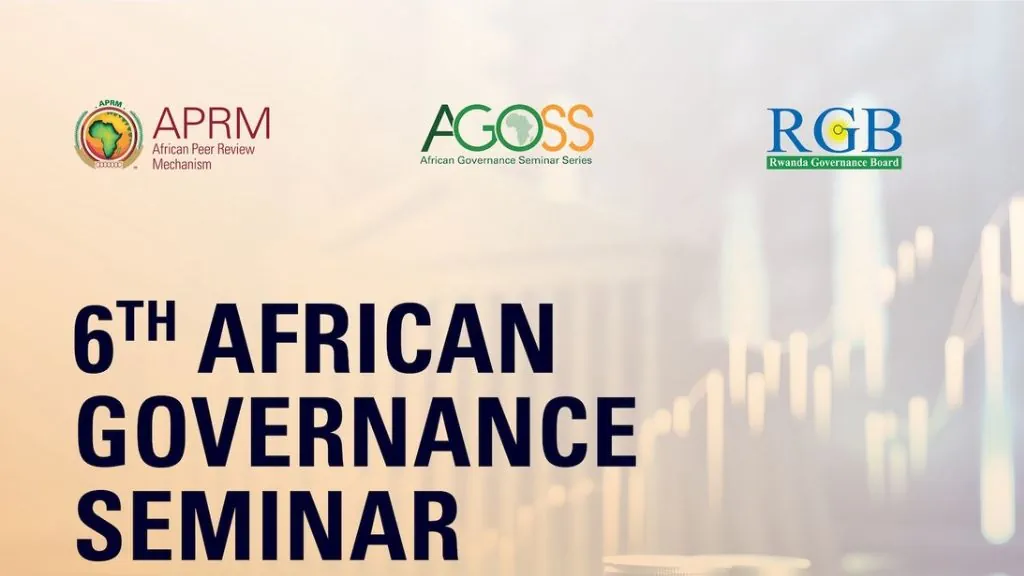
At the 6th African Governance Seminar (AGOSS) held between 30th and 31st October 2025 in Kigali, Rwanda, experts, policymakers, and thought leaders from across the continent called for bold reforms to reclaim Africa’s financial narrative. The conference, themed “Securing Africa’s Financial Future through Effective Economic Governance and Management,” explored how credit rating systems shape the continent’s access to global finance and what must change to make those systems fairer to Africa.
1. Experts Agree ICRAs are Biased Against Africa
Participants at the seminar voiced strong concerns over the bias and inconsistency of international credit rating agencies. They noted that these agencies often apply criteria that fail to reflect Africa’s actual economic fundamentals, instead magnifying perceived risks that drive up borrowing costs for African governments and businesses.
2. Consensus Builds Around the Need for an Africa Credit Rating Agency
There was strong agreement among participants that the time has come to establish an Africa Credit Rating Agency (AfCRA). The envisioned AfCRA would be a continental institution dedicated to providing fair, transparent, and context-aware credit assessments of African economies.
Experts agreed that a homegrown rating agency would help Africa tell its own financial story, build investor confidence, and ensure that ratings reflect the continent’s true creditworthiness rather than outdated global biases.
3. AfCRA Must Operate Independently
While support for AfCRA was unanimous, experts emphasised that its success will depend on institutional independence and credibility.
For AfCRA to gain international recognition, it must operate free from political interference, guided by professional standards, transparency and integrity.
Participants agreed that independence is essential not only for investor confidence but also for ensuring AfCRA’s assessments withstand global scrutiny.
4. AU Members Must Strengthen Governance and Institutional Frameworks
Speakers emphasised that establishing a continental rating agency alone is insufficient—strong national institutions remain the backbone of credible ratings.
Experts urged African Union Member States to improve governance, transparency, and fiscal management to strengthen their sovereign credit profiles.
Weak governance structures, policy inconsistencies, and data gaps continue to weigh on Africa’s ratings. By reinforcing their institutions, AU Member States can create an enabling environment for AfCRA to thrive and ensure that Africa’s credit story is told from a position of strength.
This message echoes the aspirations of AU Agenda 2063: “The Africa We Want,” which envisions a prosperous and resilient continent built on sound governance and inclusive development.
5. Central Banks’ Independence is Key to Stronger Sovereign Ratings
Another key takeaway from the seminar was the call for greater independence of central banks across Africa. Experts agreed that credible and autonomous monetary institutions are vital to maintaining macroeconomic stability, managing inflation, and building investor trust, all of which feed directly into stronger sovereign credit ratings.
The discussions linked central bank independence to resilient local credit systems and currency stability, two themes central to Africa’s long-term economic sovereignty.
6. Mobilising Domestic Savings and Investment to Bridge Africa’s Infrastructure Gap
With external grants and concessional financing from traditional partners declining, participants urged African countries to look inward to fund development.
Experts called for the mobilization of domestic savings, investments, and diaspora remittances to finance infrastructure and bridge the continent’s funding gap.
They highlighted opportunities within pension funds, insurance reserves, local bond markets, and remittance inflows—sources that can be harnessed to finance sustainable growth. By developing strong domestic capital markets, Africa can reduce dependence on external lenders and improve its resilience to global credit shocks.
As the APRM continues to drive conversations on governance and economic transformation, this year’s AGOSS served as a timely reminder that Africa’s greatest strength lies in controlling its own narrative—economically, politically, and institutionally.








Leave A Comment